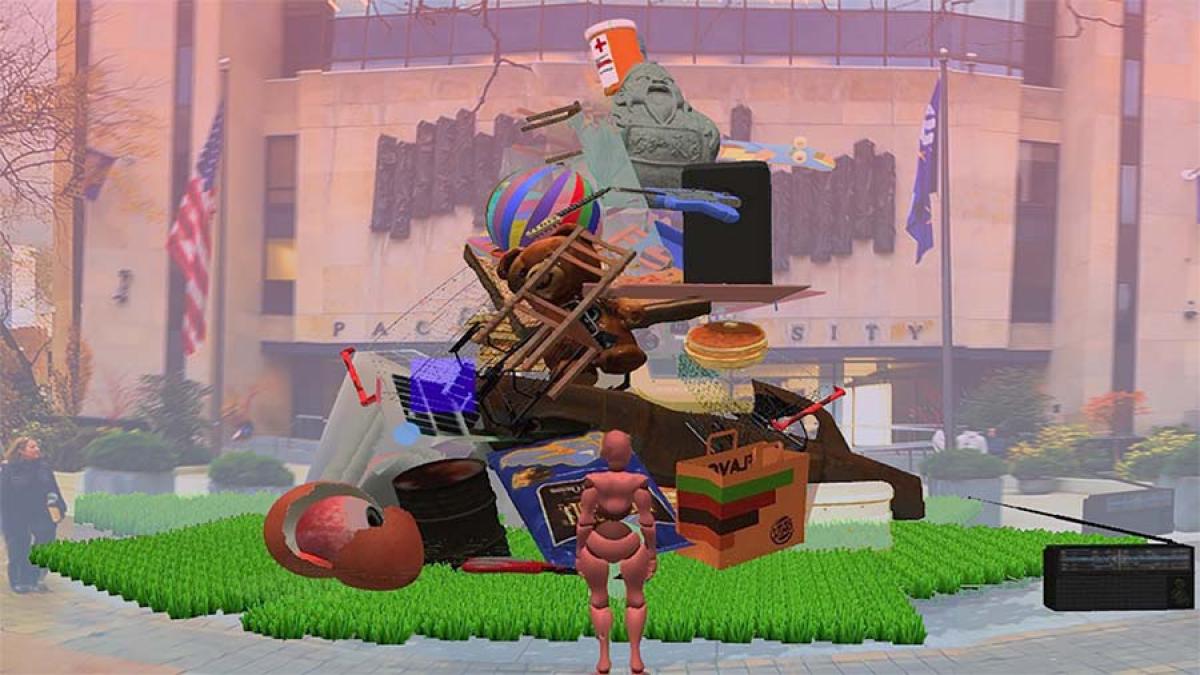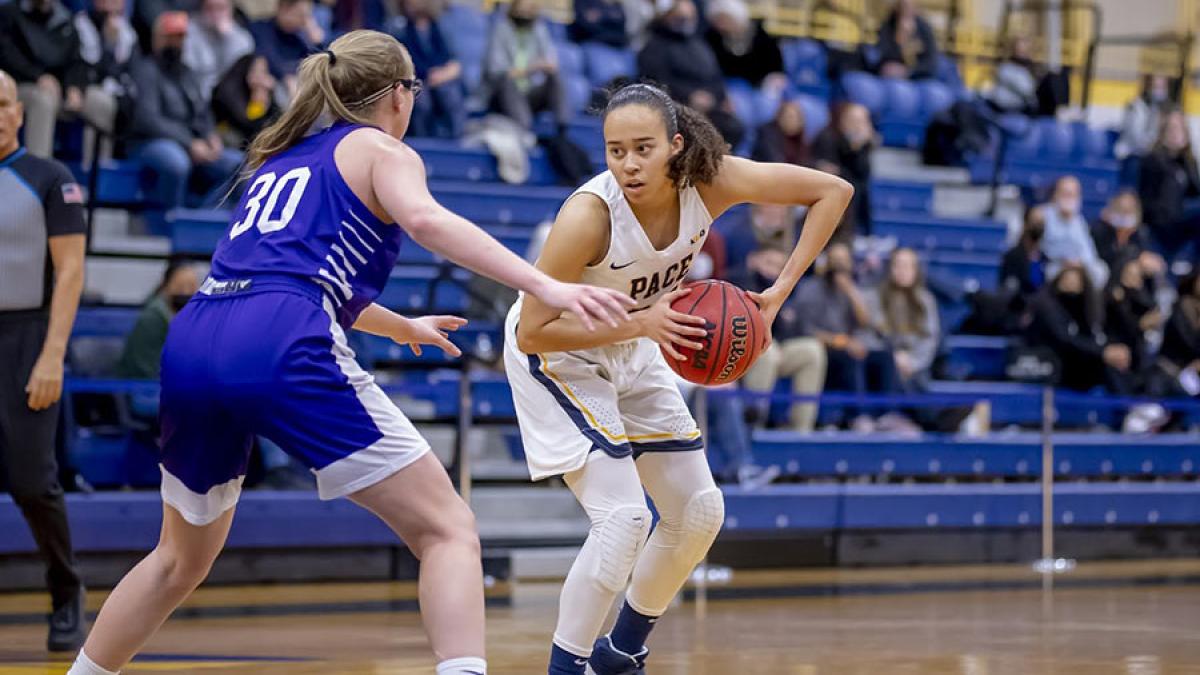Through Digital Trash, an augmented reality art exhibit, Professor Will Pappenheimer and his mobile media students are elucidating an often-unseen problem in a truly innovative way.
Why Is Your Relationship Nothing Like Your favorite Love Story, According to Relationship Expert
I asked Dr. Aditi Paul, a sex and relationships professor at Pace University, New York, why love is not as lovely as it should be, and here is what she has to say.
The Science of Machine Learning
Pace’s new Computational Intelligence Lab is officially open, serving as a hub for those interested in improving their programming skills, learning more about pattern recognition and artificial intelligence, and finding a place for like-minded people to congregate and collaborate.
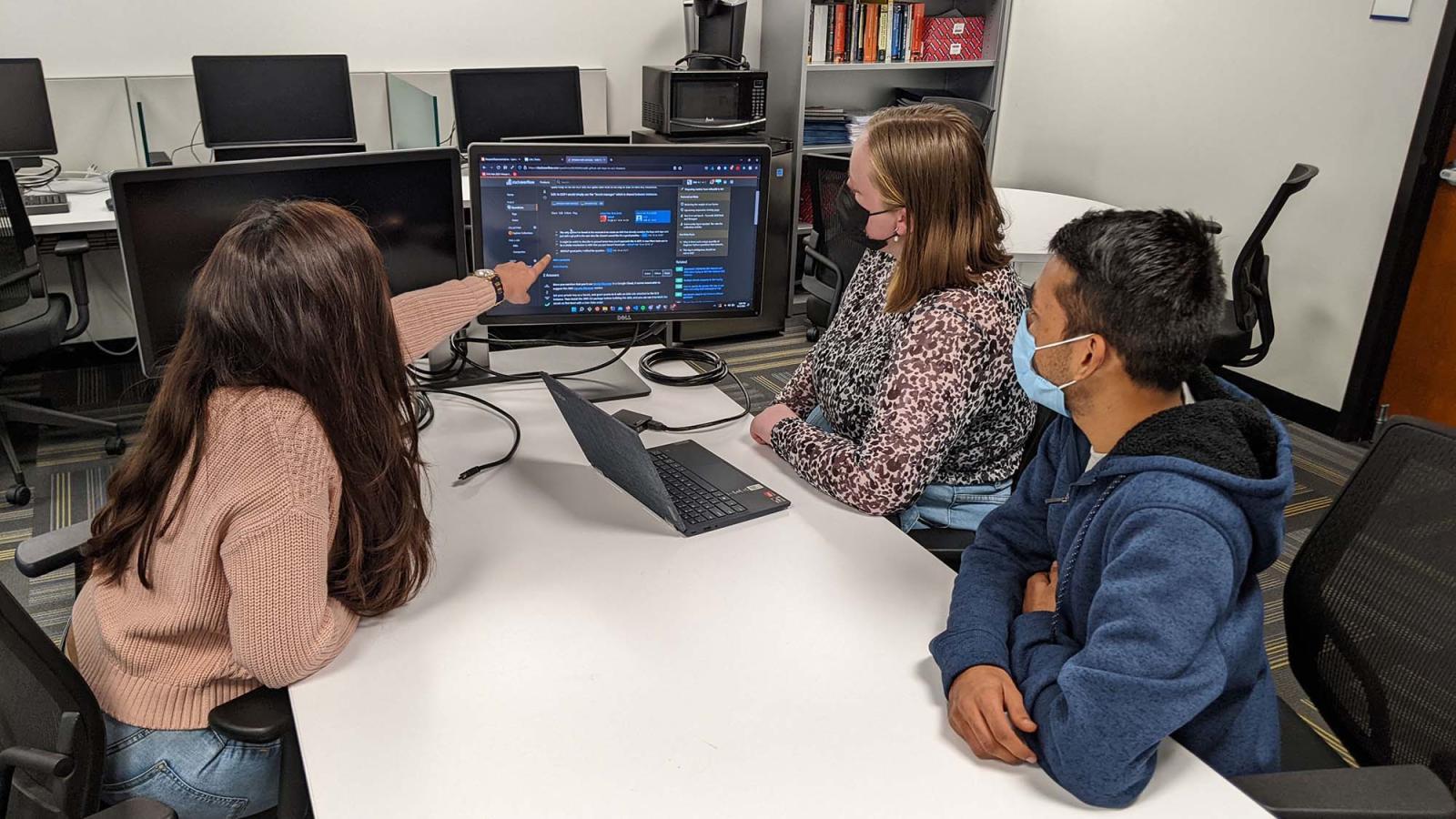
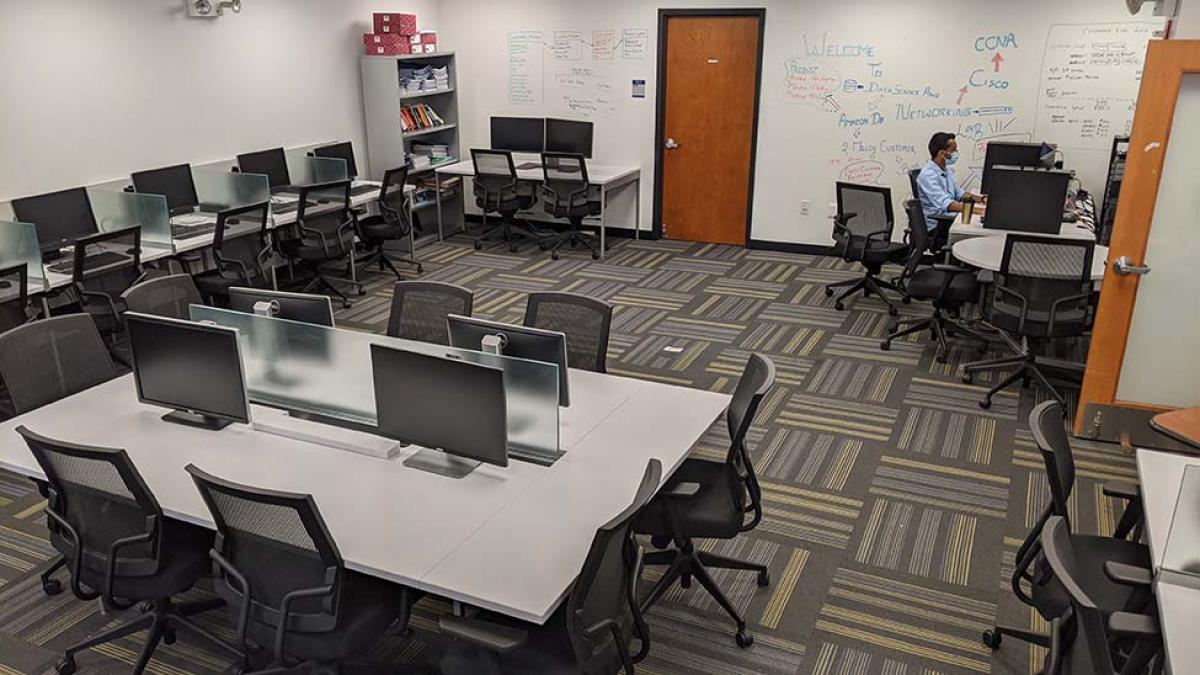
When you work in the digital sphere, it is easy to become disconnected. A year ago, clinical professor and former Wall Street data analyst Frank Parisi, alongside other Pace faculty, conceptualized a space where individuals with an interest in data science and machine learning could connect. “We wanted to make a central repository for all kinds of data, where we have the computational power to do interesting things, work together and collaborate across the University and, in the long-term, with outside partners for research.” Now, the space has been set up, the machines moved in, and Pace’s Computational Intelligence Lab is open for business.
Computational intelligence refers to the machine learning and data analysis abilities of a computer—it’s what allows us to collect data, speak to Siri, and play the newest video games. Having a physical lab with quality equipment and dedicated software means that students and faculty engaged in deeper analysis will not have to rely on remote Google servers to get their work done.
“This will be a proper space for computational intelligence specifically, from Artificial Intelligence, pattern recognition and machine learning.”
The lab isn’t just powered by machines, but also by passionate students. Multiple student employees are hard at work developing content for other students to exercise their technical skills while getting hands-on help from their peers.
Austin Blaise ’22 is a graduate computer science student who finds so much value in such a space that he volunteered to help set up the lab. He hopes for it to become a vibrant hub for students interested in data science, saying, “This lab allows you to learn the basics to create your own artificial intelligence model, and also have an environment wherein you have similar-minded students working on similar technologies.”
“This lab allows you to learn the basics to create your own artificial intelligence model."
Jon Lee, a clinical professor, was one of the architects of the Lab and he believes it will be unique in what it offers. “There are other Pace hubs that exist for design, digital forensics, cybersecurity,” he says. “This will be a proper space for computational intelligence specifically, from Artificial Intelligence, pattern recognition and machine learning.”
More importantly, perhaps, is its function as a place for students and faculty with similar interests to gather and connect. According to Lee, this lab is “one more way to get Seidenberg students engaged, active, and doing amazing things on campus, especially those who are feeling disconnected after COVID-19.”
Want to see the Computational Intelligence Lab or learn how you can get involved? Reach out to Frank Parisi at fparisi@pace.edu or Yegin Genc at ygenc@pace.edu.
#PaceGoGetters: Camila Rivera
“You are capable of doing whatever you dream of,” says Pace School of Performing Arts student Camila Rivera, who grew up in the countryside of Puerto Rico and is now studying acting in the most connected city on Earth.

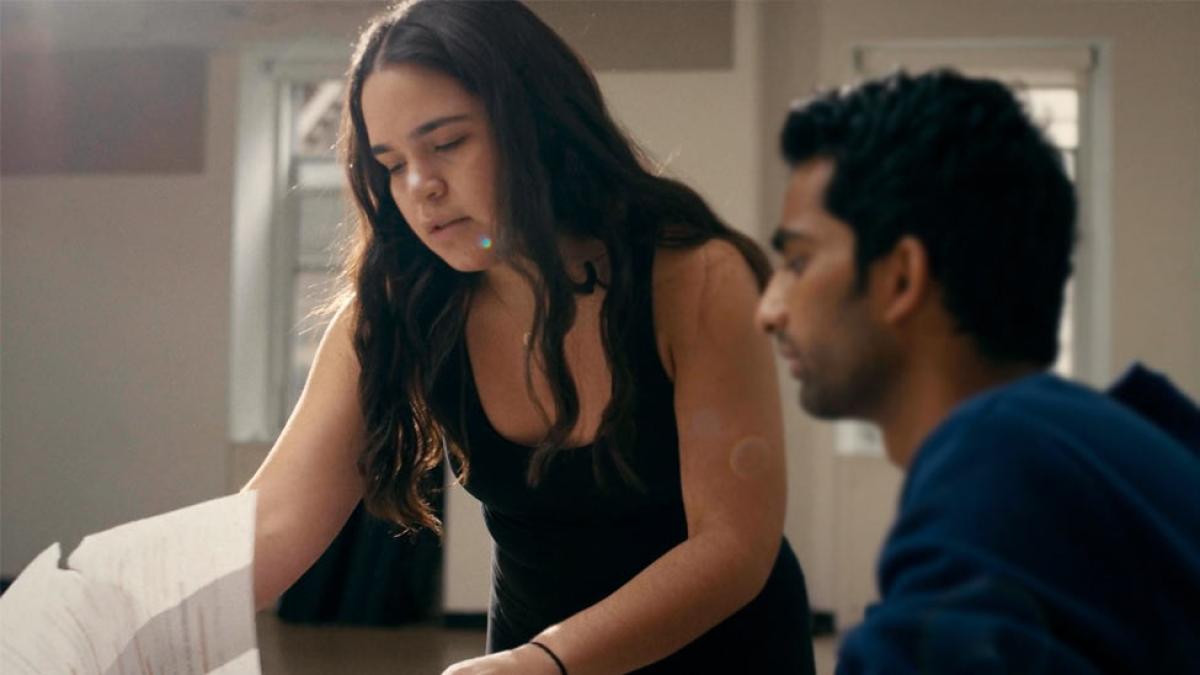
“You are capable of doing whatever you dream of,” says Pace School of Performing Arts student Camila Rivera, who grew up in the countryside of Puerto Rico and is now studying acting in the most connected city on Earth.
Feeding Westchester Food for Thought
The Pace Pleasantville Mobile Food Pantry is doing more than just fighting hunger on Pace’s Westchester Campus. The pantry and its volunteers are starting conversations to help end the stigma around food insecurity and question its roots.
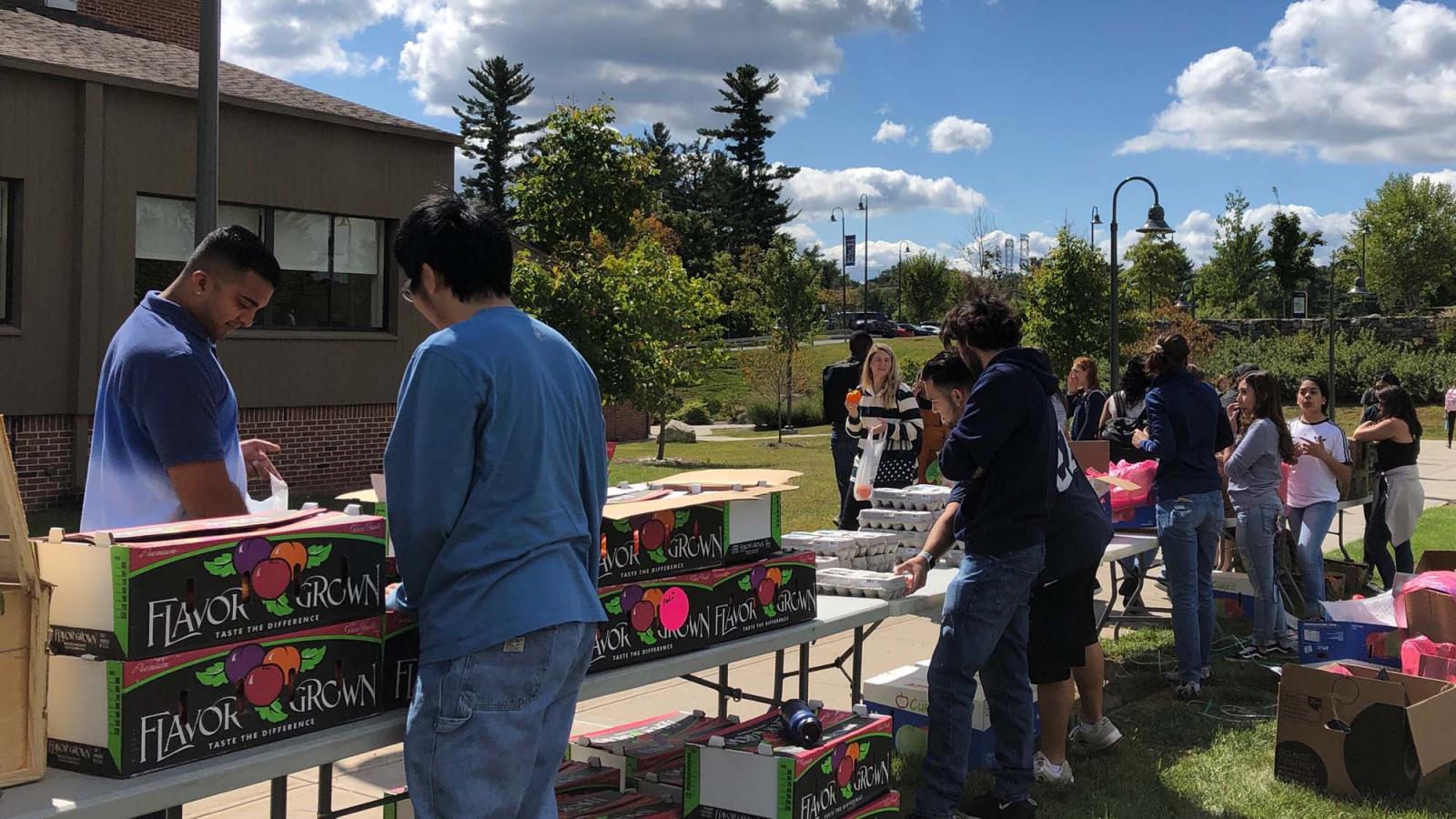
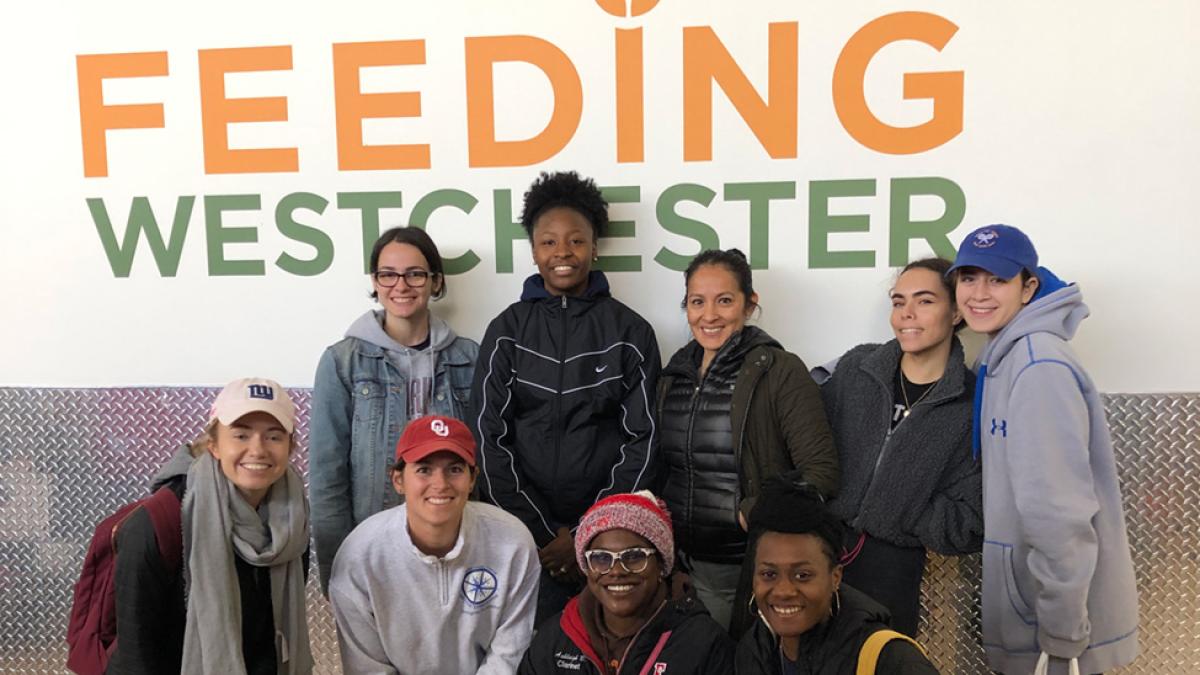
Once a month, a mobile food pantry rolls onto Pace’s Westchester Campus and staff and students from across the community—with special support from the Center of Community Action and Research; Student Engagement; and the Division of Opportunity and Institutional Excellence—gather. There, volunteers distribute food to any member of the Pace Community who needs the support, no questions asked. It feels less like a food pantry and more like a farmer’s market. Why? Because the volunteers know that there is no shame in food insecurity.
“This isn’t a Pace problem. It’s not even a student issue. It’s a national issue,” Heather Novak, director of the Center for Community Action and Research, explains. She recently became coordinator for the Pace Pleasantville Mobile Food Pantry, which has been operating since 2018. Her passion for the project, besides supporting community members who may need a leg up, is in taking away the stigma around food insecurity.
“There should be no shame. Food is a right.”
The mobile food pantry is the product of an award-winning partnership between Pace and Feeding Westchester, a nonprofit dedicated to distributing nutritious food across Westchester. Feeding Westchester provides the food at no cost to Pace, and Pace provides the volunteers to distribute food once a month.
There isn’t a blueprint for what makes a person food insecure. Visitors of the mobile pantry span across students, staff, and faculty, and at varying degrees of need. “There are levels of food insecurity. From the individual who has no access, to those individuals who have situational need for access,” Novak explains. “We also get to the end of the semester where students run down their meal plans and need support. They don’t have many alternatives.”
One of the primary ideologies surrounding the mobile pantry is curbing feelings of shame for needing services like food banks and food pantries. Novak explains that the pantry should not be viewed as charity or be associated with a sense of saviorism. “Those using the pantry are not less fortunate, they are community members,” she insists. “And we are responsible for making sure they have the support they need to be successful. If you’re hungry, you can’t focus on anything. You can’t be a successful student or employee. There should be no shame. Food is a right.”
“Those using the pantry are not less fortunate, they are community members.”
Novak is especially proud of the conversations the pantry has stirred up. There is an oscillation between satisfaction that people are using the pantry, thoughtful commentary on the greater systems at play, and hope for a future where such services are no longer necessary. She hopes for everyone involved to look at the larger picture with a critical eye. “It’s more than just feeling good; we’re helping our community members, but also normalizing the conversation around it. So, when someone says that it’s good we have so many people using the pantry, the conversation doesn’t end there.”
Initiatives like the pantry are temporary solutions to systemic problems. Mutual aid services become more effective when they are institutionalized and when deeper discourse begins to unravel the roots of the problem. But in the meantime, the Pace Pleasantville Mobile Food Pantry will make sure our community stays fed.
Need food resources in New York City or Haub Law? We’ve got our community covered. Check out Provisions, a Bhandari Jain Family Food Pantry on the NYC Campus and Haub Law’s recently launched pantry.
How to Power A City
Through her documentary film, How to Power a City, Dyson Professor Melanie LaRosa explores the people leading initiatives that are helping to bring clean energy to cities across the country.


“People don’t believe in their own ability to make changes. Or they look at something—let’s say solar energy in New York, or clean energy in New York and think ‘this is impossible.’ That idea, in and of itself, is probably the biggest obstacle. Because it is possible.”
These are the words of Dyson Assistant Professor of Media, Communications, and Visual Arts Melanie LaRosa. Over half a decade ago, LaRosa, who is also a documentary filmmaker, began to further explore clean energy transitions being done in New York City, primarily out of curiosity. As LaRosa recounts, “you would go to a farmer’s market and there’d be these tables set up, and they’d be like, ‘hey you want to switch to wind-power?’ I remember talking to some of the people at the tables and honestly, they couldn’t give great answers about how it worked. That’s documentary filmmaker catnip right there—if I’m interested, other people probably are too.”
Wanting to further explore how these processes worked in practice, LaRosa decided to find the closest wind farm to New York City. Her research took her to Atlantic City, New Jersey, home of the Atlantic County Utilities Authority (ACUA), a wastewater treatment center committed to 100 percent renewable energy. While LaRosa was impressed the initiative alone, she also noticed something that she didn’t quite expect from a wastewater treatment plant—that they offered tours.
“Let me say that again: They gave tours. This was a wastewater treatment facility,” says LaRosa. “Have you ever gone on a tour of a wastewater treatment facility?”
By this point, LaRosa began to sketch out the idea that eventually became her documentary film How to Power A City. While at ACUA, she discussed her intention of documenting the people and projects being conducted, and how they are helping to bring clean energy to the public in a sustainable way. With ACUA on board, she began further exploring related initiatives across the country.
Over the next several years, LaRosa followed diverse stories across the US and Puerto Rico—ranging from Las Vegas’ pledge to become the first large city in America to run on 100 percent renewable energy, to a Vermont utility company committed to being the first in the nation for clean energy integration, to energy transformation and resilience following the devastation of Hurricane Maria in Puerto Rico. All in all, LaRosa chronicled six locations, all of which faced different challenges to bringing clean energy to their region. Whether these challenges were bureaucratic, technological, or financial, each group remained committed to their ultimate goal.
“I think everybody started with a sense of their own ability to make some change happen.”
“I think everybody started with a sense of their own ability to make some change happen,” said LaRosa. “Every person in all those different cases or situations felt like they were able—and to me that’s what distinguishes them from people who say, ‘yea, climate change is terrible, we should get off fossil fuels, but we don’t know how.’ That was really the genesis of the film title, How to Power a City.”
LaRosa was recently named a 2022 Public Voices Fellow on the Climate Crisis. Awarded through the Yale Program on Climate Change Communication, the Fellowship recognizes individuals who have demonstrated “high-powered thought leadership in a variety of ways, including education, community organizing, public advocacy, and writing.” LaRosa, along with 19 other individuals are helping to bring new voices to this ever-important conversation.
“We’re a cohort of 20 people working on climate change. Some people are doctors, activists, or work in media. The idea is to bring new voices to discussions and public conversations about climate change. And to show unique perspectives. For me, the fellowship is a way to keep sharing what I saw on that journey without trying to bring it to the public as a lecture.”
After several years of filming, unintended delays caused in part by the COVID-19 pandemic, and a few short-film detours telling stories of individual projects (one of which, Solar Libre: Family Affair, won the Best Short Documentary Award at the Rincón International Film Festival in Puerto Rico), the feature film, How to Power a City, is nearly ready to be broadcast to the world.
LaRosa is excited to share the stories of resilient individuals, as well as their actionable solutions to the ever-complex problems posed by energy consumption. Her solutions-based journalism approach—a style of journalism that supports social change—is intended to be empowering and energizing to the audience; perhaps motivating viewers to join community solar initiatives, or simply believe that their actions can in fact make a positive impact.
“When it comes to bringing clean energy to where they live, a lot of people feel like maybe they don’t know how. These people we featured not only knew how, but they went there. Just the ability to believe in their own efficacy. That they could change something.”
To learn more about the clean energy initiatives featured and future screenings, visit the film’s website. You can also follow @HowToPowerACity on instagram or watch the film's trailer.
More from Pace
What is the price of a dream? Dyson Professor Kiku Huckle explores complex questions about belonging, identity, and immigration in her new thought-provoking documentary.
Both in the classroom and on the court, Naya Rivera ’22 has shown that the desire to change things for the better—and simply putting yourself out there—can truly go a long way.
Leaping into Luxury Marketing with Lubin
Meet Lubin student Sydney Walmsley '24, a marketing major who discovered an interest in luxury marketing and landed her very first internship with a growing brand that allows her to combine her passions of sustainability and beauty.
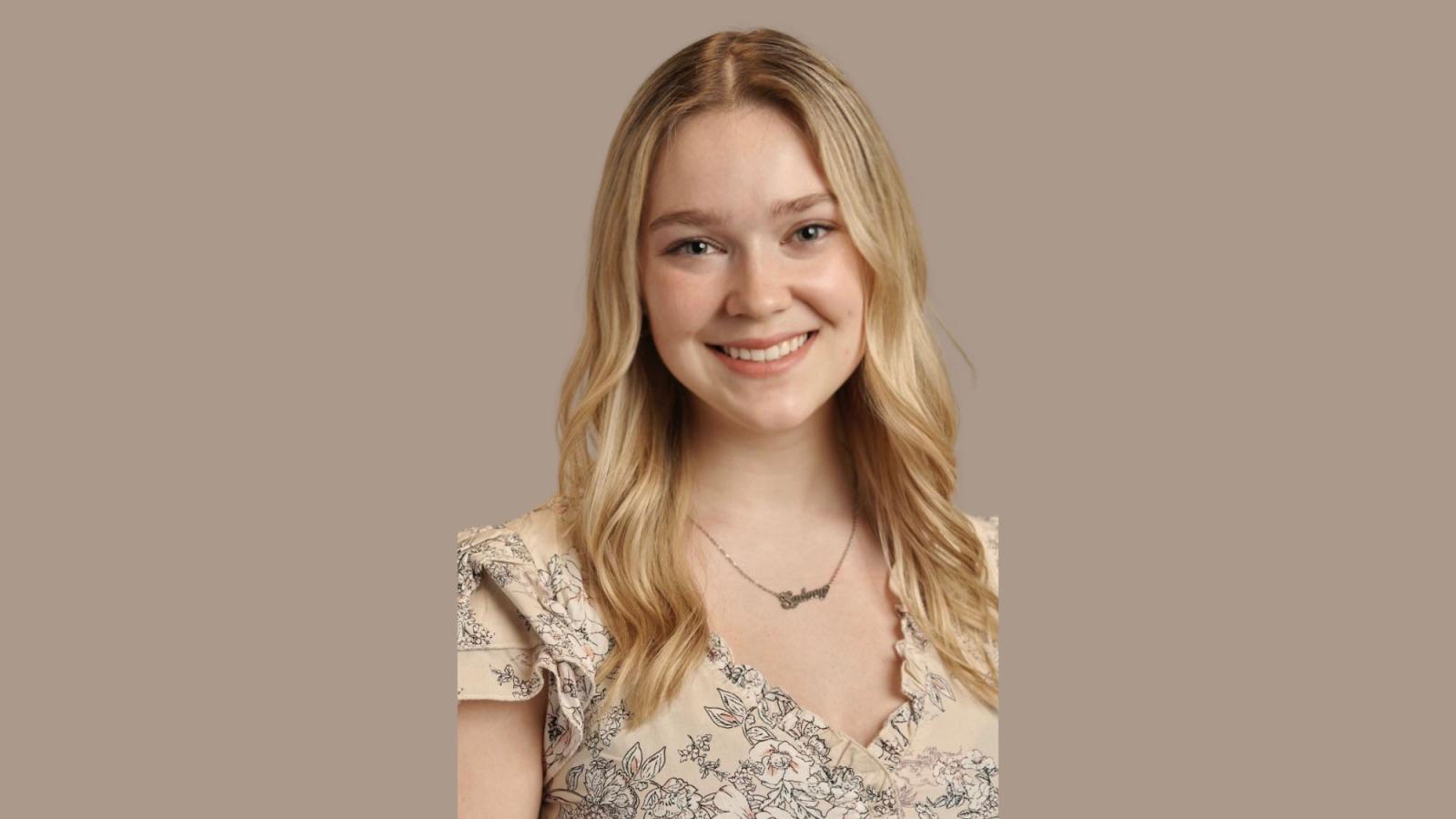
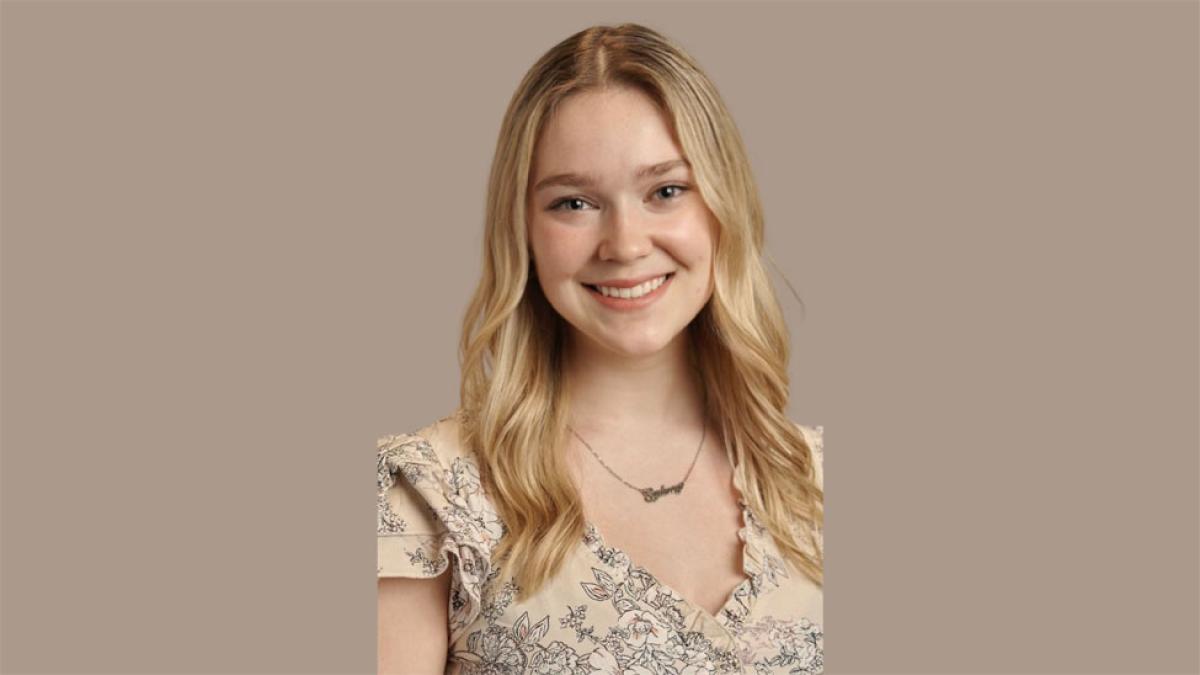
Sydney Walmsley
In-Store Marketing Coordinator, UNIQLO
Class of 2024
BBA in Marketing—Global Marketing Management with a minor in Fashion Marketing
Internship: US Marketing Intern, Elemis
Pronouns: She/Her
As she heads into her junior year at Pace University, Sydney Walmsley is already bringing her career goals to life. After discovering an interest in luxury marketing, she landed her very first internship with a growing brand that allows her to combine her passions of sustainability and beauty—and she credits the skills and knowledge gained during her time at the Lubin School of Business.
How has the Lubin School of Business helped you prepare for your current internship?
The Lubin School of Business and Pace University Career Services have definitely prepared me for my internship. My UNV 101 and Business 255 classes prepared me for the interview process and helped me determine my career aspirations. A lot of the skills I established in my Marketing Research class have also been useful for the competitive research I do at Elemis.
What attracted you to this internship?
I have known for a while that I wanted to pursue a career within the world of luxury marketing. I have always had an interest in beauty and fashion so when this internship at Elemis came along, I was immediately interested. The company places a large emphasis on sustainability, which is a passion of mine, so it seemed like a perfect fit.
Describe what a typical day looks like as an intern at Elemis.
One of my favorite things about interning at Elemis is that no two days are alike. The office is a bustling, fast paced environment which makes every day exciting. Each day, I am assigned different tasks to complete which can range from sending product to retailers to competitive research. It’s a really great way to explore the marketing industry and discover which aspects of the field I enjoy most.
One of my favorite things about interning at Elemis is that no two days are alike. The office is a bustling, fast paced environment which makes every day exciting. Each day, I am assigned different tasks to complete which can range from sending product to retailers to competitive research. It’s a really great way to explore the marketing industry and discover which aspects of the field I enjoy most.
What has been the highlight or most enjoyable aspect of your internship so far?
The highlight of this internship thus far has been getting to witness the brand grow and flourish in the United States. Elemis is a British brand so one of their main goals is to build brand awareness in the US. It has been such a unique experience to see the internal processes used to make this happen.
How has this experience shaped or impacted your career goals?
This internship has piqued my interest in marketing for the beauty industry. A year ago, I never would have envisioned myself in a marketing role, especially in an up-and-coming skincare brand. I have learned so much about competitors and trends within this industry, which is preparing me for a future in the beauty industry.
How will this experience impact your next semester at Lubin?
I am excited to apply the skills that I am learning at Elemis in my next semester at Lubin. It will be wonderful to have some real-world work experience to refer to in class.
Do you have any advice for other Lubin students who would like to pursue an internship in the future?
Even if you feel like you don’t have enough experience or knowledge within your respective field: go for it. Lubin is all about taking chances on yourself and exploring new areas, so it’s important to go for any opportunity that’s interesting to you. Companies are looking for excited and eager students who are willing to learn, so take a chance and apply!
Connect with Sydney:
Instagram: @sydneywalmsley
LinkedIn: Sydney-Walmsley
Finding New Passions Through On-Campus Resources
Meet Viktoriia Yevtushenko '25, a digital marketing major who used Pace resources to land an exciting summer internship with the illustrious real estate agency Douglas Elliman.


Viktoriia Yevtushenko
Class of 2025
Currently Studying: BBA in Digital Marketing with a minor Business Analytics
Current Internship: Social Media and Marketing Intern at Douglas Elliman
Pronouns: She/Her
When Lubin School of Business student Viktoriia Yevtushenko started her search for a summer internship, she only had one requirement: a position that sounded interesting. Now, as a social media and marketing intern with Douglas Elliman, she can confidently say she found exactly what she was looking for. Her advice for other Lubin students? Take advantage of Pace University's resources.
How has the Lubin School of Business helped you prepare for your current internship?
The Lubin School of Business has offered me numerous opportunities. First and foremost, I learned the fundamentals of business, management, and economics through my courses at Lubin. In addition, I've been able to develop my resume and professional network and collaborate with my peers. Lubin has helpful staff and students who have supported me.
I've also been working with Career Services. I completed online international student training and met with a counselor for resume and interview guidance. I applied for internships via Handshake, which is how I landed my current summer internship with Douglas Elliman.
What attracted you to this internship?
As I was looking for an internship, I didn't have any specific field in mind, but my primary goal was to find a position that sounded interesting. Real estate is a fascinating industry with numerous prospects and opportunities for networking—you get to help your clients discover their dream house or property. Helping them locate the ideal house for their family inspires me to do it all over again. People who get bored in an office doing the same thing every day, I believe, will not find that to be a problem in real estate.
Describe what a typical day looks like as an intern at Douglas Elliman.
There are common tasks, but each day presents a unique set of opportunities—new people, new properties, and new challenges to overcome. Communication is an important aspect of this career. Attending social activities and meeting new people are part of the job since we need to keep in touch with possible sellers and buyers in the market. My job entails a lot of marketing, which includes developing our social media networks. Maintaining social media networks is a creative aspect of my internship since uniqueness and visual perspectives are vital. I focus on increasing engagement, page visits, and audience reach—it's intriguing to test various techniques and plans in order to attain better results. I also manage a huge database of our clients, which is always expanding.
My internship is in-person at an office near Central Park. Offices, in my opinion, play an important role in cooperation by establishing an environment conducive to collective invention, productivity, and well-being. Being in the office allows me to interact with a variety of people. When people work from home, their networks could greatly decrease to the people they only need to directly work with. As a group, ideas can be shared and developed more easily. It's also easier for me to speak with colleagues and bounce ideas off one another, which generates energy and a pleasant working environment that cannot be recreated remotely. Interning in an office environment also allows me to learn office politics, too.
What has been the highlight or most enjoyable aspect of your internship so far?
My internship provides the opportunity to learn. Market trends, new technologies, social media, and the unpredictable in every interaction means there is always something to learn. The most intriguing aspect of my work is that I get to attend real estate events and property views. Working in real estate gives me the opportunity to meet new and interesting people every day. A profession in real estate marketing is ideal for building new relationships with people from all spheres of life. Your network will expand over time, and the larger your network, the more options you will have to further your career.
Working in real estate gives me the opportunity to meet new and interesting people every day. A profession in real estate marketing is ideal for building new relationships with people from all spheres of life. Your network will expand over time, and the larger your network, the more options you will have to further your career.
How has this experience shaped or impacted your career goals?
In today's environment, having only a degree is no longer sufficient. As a result, internships have become a vital opportunity for candidates to differentiate themselves. I believe that networking is the most important tool for career advancement. The reservoir of information or ideas you accumulate over time impacts your work success. When networks are formed, it encourages the exchange of ideas in order to maintain long-term partnerships and mutual trust. Receiving ideas can aid you both at work and in the classroom, as well as instilling ideal habits that will benefit your career. So the more effectively you network, the more self-confidence you build over time.
How will this experience impact your next semester at Lubin?
I'll be taking several core business courses next semester, including Business Analytics, Marketing, and Professional Business Practice. I believe that my internship experience will better prepare me for these courses. This position allows me to gain real-world experience and expand my skills. I can apply what I've learned through an internship to my college experience. In addition, an internship exposes me to the problems of a work setting and having experience with these circumstances will be valuable in future interviews. I feel that if I make a mistake during my work, I will be able to learn how to fix it and, more importantly, move on from it.
Do you have any advice for other Lubin students who would like to pursue an internship in the future?
Networking is essential because it will help you develop and improve your skill set, stay on top of the latest trends in your industry, keep a pulse on the job market, and gain access to the resources that will benefit your career development. Don't dismiss the value of Handshake and the Career Services office. Utilize the resources that are accessible to you. It is also critical to remember that finding an internship requires effort. You should tailor your cover letter for each position to demonstrate your interest and professionalism. The importance of time management cannot be underestimated either. Organizing is essential for keeping track of work responsibilities, meeting deadlines, and demonstrating to your manager that you can monitor your obligations independently and do not require continual supervision.
Connect with Viktoriia:
Instagram: @Vik.Yevt
LinkedIn: Viktoriia Yevtushenko
Twitter: @v_yevt
Privacy, you, and your business
Adjunct Professor John Bandler helps businesses evaluate the effectiveness of their privacy programs in an article in the Westchester and Farifield County Business Journals.
Inside the Quest to Humanise AI
Some may wonder: what if AI could understand thoughts and emotions and gain the ability to empathise and respond to human behaviour? Dr Aditi Paul, assistant professor of communication studies at Pace University, New York, says “researchers agree that added benefits in online interaction not only personalises human connection but hyperpersonalises it.”
2022's Best & Worst Cities for Staycations
Andrew O. Coggins, Clinical Professor, Management and Management Science, Lubin School of Business - Given the effects of the coronavirus pandemic on tourism and travel, what are the best ways to enjoy a staycation and keep safe? Other than staying home, visit open-air sites, avoid large crowds, wear masks indoors, take advantage of local deals (hotel/resort/spa weekend getaways, etc.), and visit local hidden gems.

